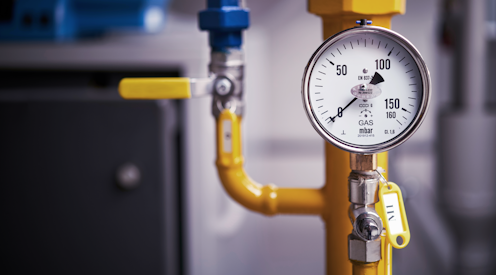Avoiding a gas shortage is one thing, but what's needed is action on prices
- Written by The Conversation

The Albanese government has accepted the Australian Competition and Consumer Commission’s recommendation to “initiate the first step” to trigger the controversial Australian Domestic Gas Security Mechanism to avert a supply crisis in eastern Australia.
What the competition watchdog hasn’t recommended is what to do about the gas price, which has little to do with supply.
In its latest half-yearly report on gas supply, the ACCC predicts that, without action, eastern Australia will suffer a domestic gas shortage in 2023, and is concerned that already-high prices will go even higher.
The report identifies several causes. One is Russia’s war against Ukraine, which has European buyers seeking alternatives to Russian gas.







